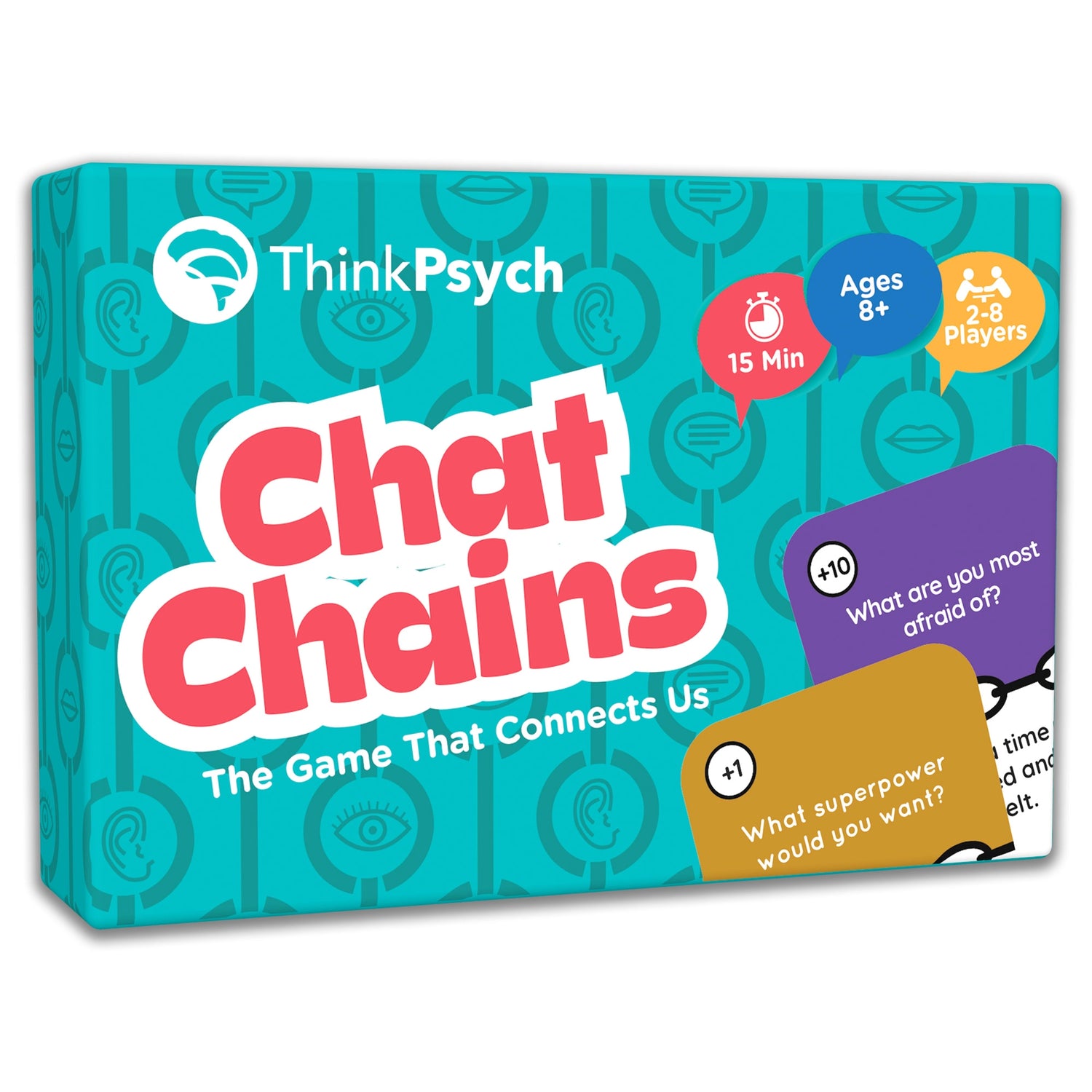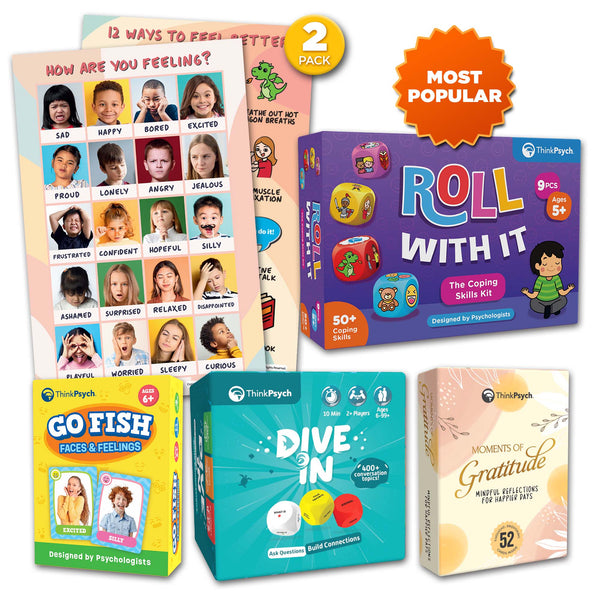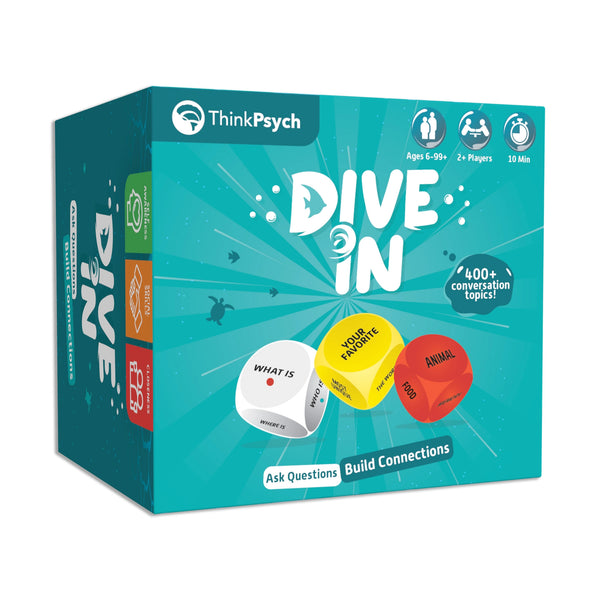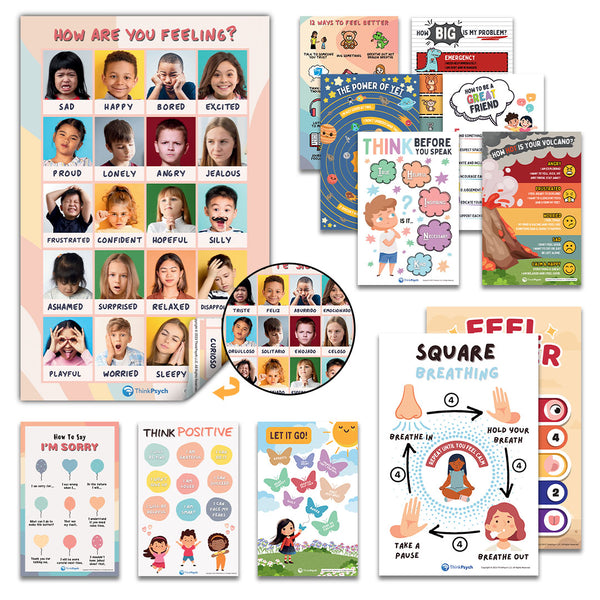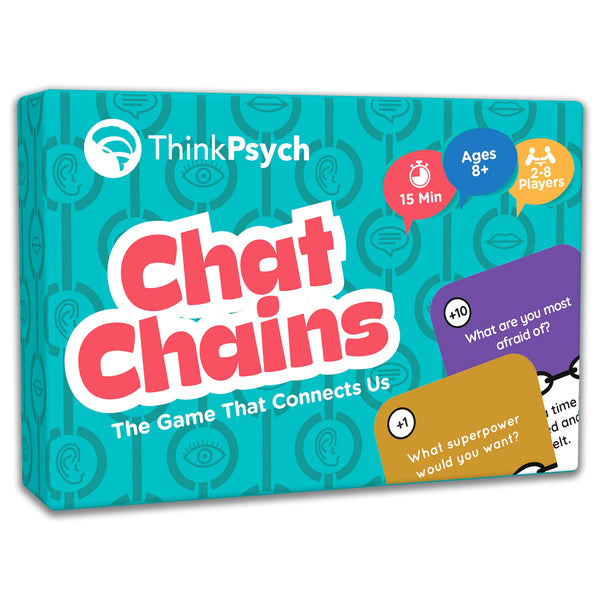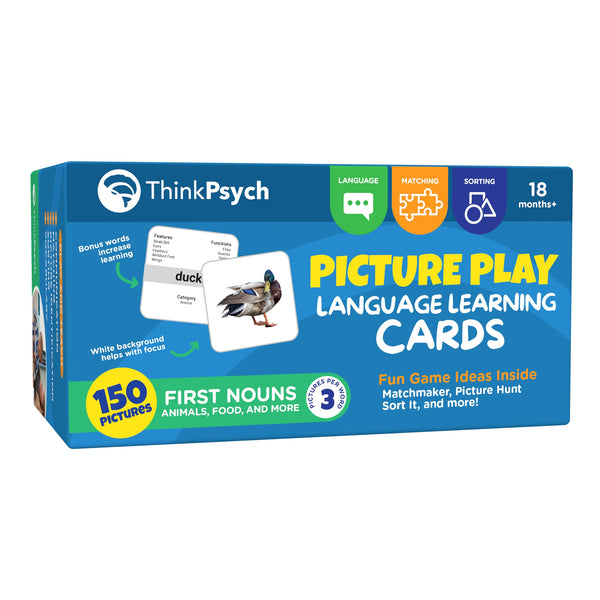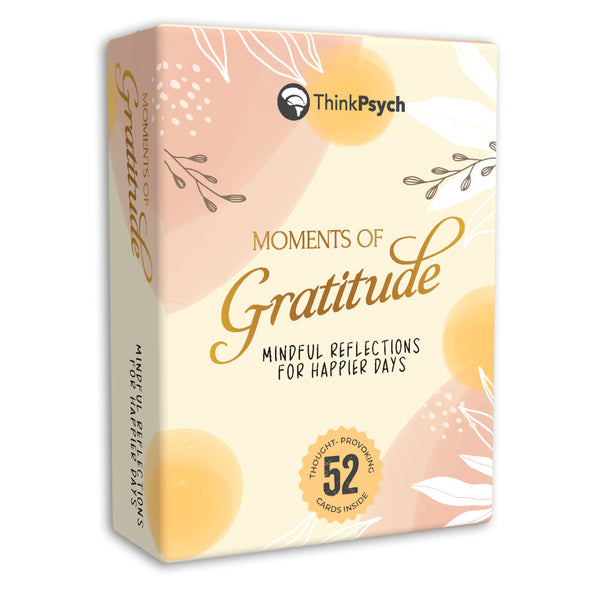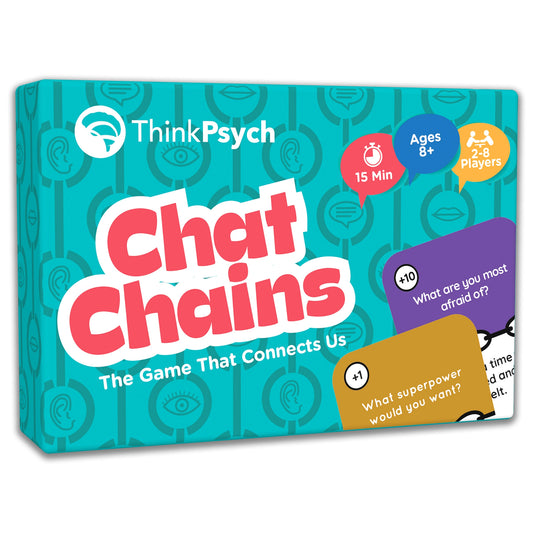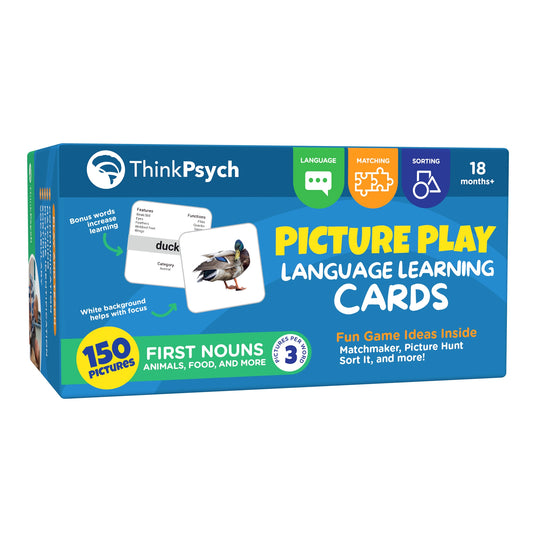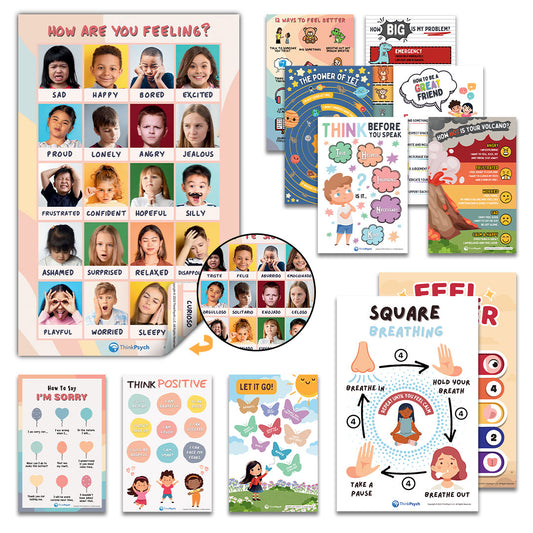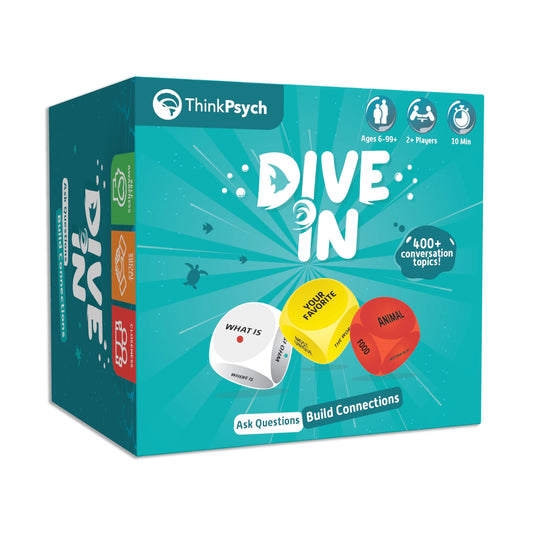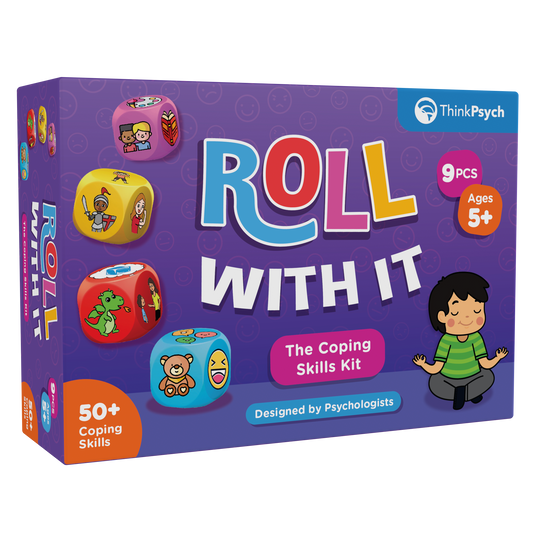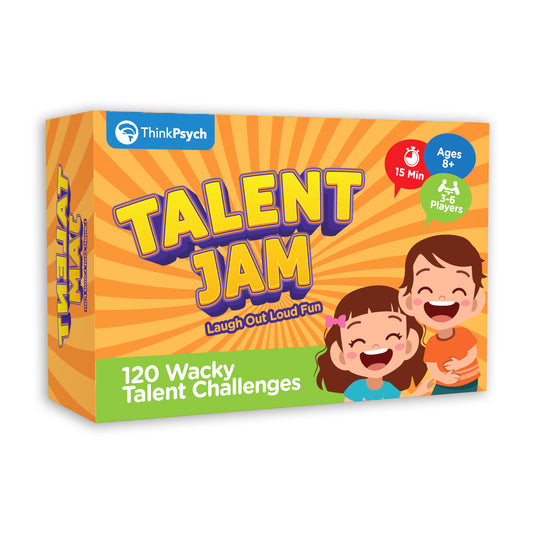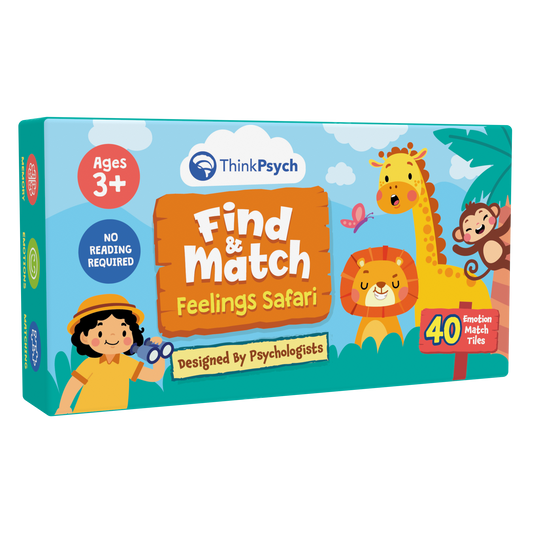
The Best Matching Games for Kids (+ Pros for Child Development)
Share
Childhood wouldn’t be complete without a game of Concentration or Go Fish. But did you know that matching games like these are good for skill development?
As you seek out educational games for your kids at home or in the classroom, opt for tried-and-true matching games. These activities never go out of style — plus, they’re excellent for memory, problem-solving, pattern recognition and more.
Let’s take an insider’s look into why you should stock up on the best matching games — as well as diverse types to try out!
Why Matching Games Are an A+ Choice
Matching games — which involve your child finding identical pairs of cards or pieces — nurture a range of essential skills during playtime.
-
Memory: Practicing short-term recollection by flipping over and remembering images.
-
Attention span: Focusing on recalling where certain images are located.
-
Mathematical concepts: Grouping and categorizing images to build early math skills.
-
Problem-solving: Overcoming cognitive challenges, such as identifying similarities and differences.
-
Visual discrimination: Independently sorting visual information — colors, shapes, letters, numbers, etc.
-
Pattern recognition: Identifying and remembering visual patterns.
-
Language skills: Repeating words and sentences while finding matching images.
-
Fine motor skills: Picking up cards or pieces during game play to refine motor and coordination skills.
-
Social skills: Interacting with peers, using new vocabulary, learning how to lose, etc.
At the same time, the best matching games can be a source of good fun and meaningful play for kids, leading to stronger relationship building and positive memory-making.
The Best Matching Games to Engage Your Child
Matching games are simple in concept, but can come in a range of formats. Here are the most common and engaging types of matching games for you to try out with your kids.
1. Matching Card Games
Think Concentration. Matching cards involve kids taking turns to find identical pairs. Often these cards are themed and players have to find like-cards by color, shape, pattern, etc.
2. Matching “Look and Find” Books
“Look and find” books are a go-to fun activity when your kids have to endure a long wait. Disney has some great “look and find” books, as well as series such as I Spy, Where’s Wally? and so on.
3. Matching Printables
Printables make it convenient to pick a set of matching cards, word searches or posters and print them off. If you’re a teacher, printables are especially useful for drilling numbers, letters, animals and more.
4. Matching Board Games
Plenty of board games use the concept of matching, allowing kids to practice their sorting skills. For example, dominoes is a classic one where players have to form chains by matching the numbers on the ends. Other modern games practice matching skills directly or indirectly — such as our Secret Recipes board game.
5. Matching Circle Games
What’s more, circle games utilize the concept of matching or sorting. In this case, it’s not traditional visual “matching” but rather sorting words or ideas into different categories. For example, circle games such as Concentration 64 are great for working on verbal “categorization” skills.
6. Matching Online Games
Finally, matching games are now available as apps. For example, Tetris, Match-3 and Candy Crush all practice matching and sorting skills in a lively online format. One downside is that online matching games are typically one-player, so they lack the social component.
Tips for Making the Most of Matching Games
You really can’t go wrong with matching games. Besides being educational, kids love them. To make the most of matching games, keep in mind these tips.
Play Matching Games as Early as 18 Months
Start by matching pictures to sounds or use just a handful of matching cards. Be sure there aren’t too many pairs for younger children.
Shop ThinkPsych Products
Stock Up on Matching Games for Downtime
The best matching games are ideal for transitions and wait times. Stick a deck in your bag or your kid’s backpack to use them on the go.
Make Your Own Matching Cards
You don’t have to break the bank to get new matching cards. For a fun activity for older kids, make your own cards together. All you need is paper, colored pencils and some image ideas.
Complement Matching Games with Other Activities
Categorizing is an essential skill. Get in even more practice by having your kid sort their toys in new ways or match the socks from the laundry.
More Ways to Work on Your Child’s Memory
Honing your child’s memory is important, as it forms the basis for learning new skills. Having a strong working memory makes it easier for kids to retain information, make connections and solve problems.
In addition to the best matching games, try out these other ways to boost memory and skill development:
-
Do multi-sensory activities. Engage your child in activities focused on sight, sound and touch to deepen learning.
-
Use visual aids. Flashcards, charts, posters, schedules… They're all excellent for supporting your child’s memory capacity.
-
Try CBT games. These games are focused on emotional regulation and can act as a great complement to enrich your kid’s EQ.
-
Break it down. When presenting new information, break it into bite sizes so your child isn’t overwhelmed.
-
Play teacher. Have your kid teach you how to do something. Often explaining a concept helps kids recall the information later.
-
Avoid distractions. Make sure the learning environment is clean, comforting and low-noise — whether you’re working at a desk or the kitchen table.
-
Consider mindfulness. Mindfulness exercises can go a long way in keeping your child calm and focused. Incorporate some simple breathing exercises or even take a weekly class.
Explore the Best Matching Games With ThinkPsych
Matching games offer rich developmental advantages for young children — from memory enhancement to social skills.
As you incorporate the best matching games into your classroom or playroom, check out Find & Match: Feelings Safari. Our expert-designed card game encourages kids to identify and match emotion-related images. With Feelings Safari, you can support memory and emotional intelligence in equal measures.
For more on elevating your child’s EQ, head to our blog!
References:
-
Skool of Code, Why Memory Games Are Essential for Children’s Development, https://skoolofcode.us
-
RaisingChildren.NET, Memory Game for Kids: 3-6 Years, https://raisingchildren.net.au
-
BBC, Matching Pairs Game for Kids, https://www.bbc.co.uk
-
NY Times, What Makes a Great Search-and-Find Picture Book, https://www.nytimes.com
-
LovEvery, Make Me a Match—Understanding Your Toddler’s Matching Skills, https://blog.lovevery.com
-
Child Mind Institute, How to Help Kids With Working Memory Issues, https://childmind.org
-
Parenting Science, Working Memory Tips, https://parentingscience.com
